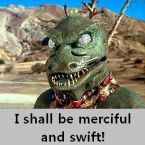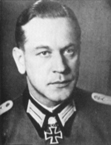BBfanboy
Posts: 18046
Joined: 8/4/2010
From: Winnipeg, MB
Status: offline

|
quote:
ORIGINAL: bomccarthy
quote:
ORIGINAL: warspite1
quote:
ORIGINAL: danlongman
My professional experience with the press in general is that they are completely
unreliable in all but the most simplistic things. Most people have an area of
expertise, usually their trade or profession and one or two hobbies or side interests.
The rest of our general information we get from the press and other conventional
sources. I noticed early in my career that they were almost completely inept at
providing any kind of accurate technical detail in my knowledge area and the language
and terms used indicated no understanding of anything except in a most general way.
I thought since they cannot get my areas of expertise remotely near the truth this
must happen for every other field as well.
warspite1
Agreed. I have been doing a lot of research into the Battle of Jutland recently. Out of curiosity, part of this has involved reading newspaper articles and I have to say the level of accurate writing is low. In fact that is unfair - its pretty appalling and if, as you say, most people get their general knowledge from sources like the press then its a sorry state of affairs. Frankly I would sooner believe something written by soojan than something written in the newspapers....
To be fair, most journalists have to cover a wide range of subjects. Certain areas, particularly finance, law, and M&A, enjoy coverage by specialists with related degrees and experience. However, you won't find their articles in the Des Moines Spectator or Eugene Press Telegram (I made those names up). Look instead in the Wall Street Journal or business pages of the NY Times (Andrew Ross Sorkin currently writes a regular M&A "column" for the NY Times - subscribe to Dealbook for daily email headlines - when he isn't creating TV shows like "Billions" for cable).
Most readers on this forum are interested in military subjects - this area definitely lacks knowledgeable reporters. In the two decades after WWII, there were many reporters well-versed in military matters, primarily because they served during the war. People like Robert Leckie, who had been a local newspaper reporter before the war, would have never considered serving in the military but for Pearl Harbor. After the war, they returned to journalism with a knowledge of the military that they lacked before the war.
With the end of the draft in the early 70s, the US military reverted back to recruiting only those who had a pre-existing interest in serving, few of whom had a journalism bent. As a result, you have to search far and wide today to find a journalist with first-hand knowledge of military matters.
In the "old days" up to about the end of WWII the reporters were at the mercy of the military establishment who put up a wall of secrecy and only allowed certain filtered information to come out, often admitting to something only after a leak had exposed it.
Nowadays the military have massive PR 'spin' departments to shape the military's image. Any reporter not playing nice is likely to be left off the guest list for numerous demonstrations, briefings and combat zone billets.
Someone said "the first casualty of war is truth", but that holds true for military war preparation as well.
_____________________________
No matter how bad a situation is, you can always make it worse. - Chris Hadfield : An Astronaut's Guide To Life On Earth
|
 Printable Version
Printable Version



















 New Messages
New Messages No New Messages
No New Messages Hot Topic w/ New Messages
Hot Topic w/ New Messages Hot Topic w/o New Messages
Hot Topic w/o New Messages Locked w/ New Messages
Locked w/ New Messages Locked w/o New Messages
Locked w/o New Messages Post New Thread
Post New Thread